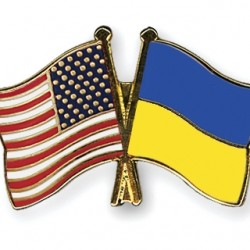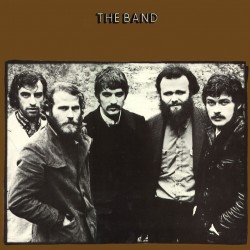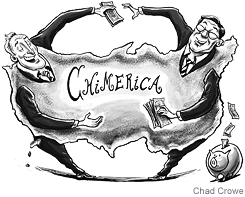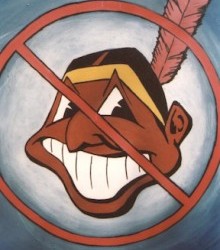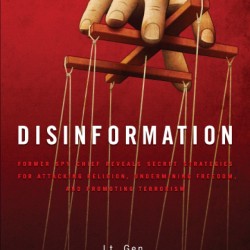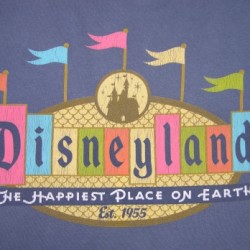Our Archives (https://www.theiramerica.org/archives/) include a special category -- Founders -- for those voices thought to be the most profound and influential in terms of defining (or re-defining) the conceptual topography of a particular theater with respect to America. We've compiled a (tentative) list of European Founders below. To recommend additions or changes to this list, please start a new topic thread in this theater's Founders section (rather than replying to this post).
'Dreamt America'
The Bible
More than any other work, the Bible spoke, and continues to speak, of and to America for non-Americans and Americans alike, yet from a radically different language, culture and context. Its Edenic paradise, and chosen land “flowing with milk and honey”—detailed from the other side of the Jordan in Deuteronomy 7—still shape the implicit standard by which many judgments of America are made.
Theocritus; Sicily (3rd-century B.C.)
In his Idylls, the poems for which he is best known, Theocritus idealized country life, writing of shepherds who competed in singing contests and wooed both nymphs and humans. The poetic conventions established here pioneered Western conceptions of a natural utopia, and established a genre -- pastoral -- through which early America would be imagined.
Virgil; Roman Republic (1st-century B.C.)
Virgil is considered the greatest of Roman poets. In his Eclogues, he complicated the poetic conventions established by Theocritus by introducing political allegories to pastoral poetry. Virgil’s descriptions of Arcadia, which transform this actual Greek region into a mythological, idealized pastoral home, became a seminal topos in the Western imagination, and the basis for early, utopian idealizations of America.
Christopher Columbus; Italy (1451–1506)
Leading the first European voyages to the American continents after the Norsemen, Columbus established settlements on the island of Hispaniola, and pioneered the Spanish (and soon more broadly European) colonization of the New World. In his letter to his patron Luis de Santangel, written after an initial visit to what is now the Bahamas, he celebrates the region’s astonishing, paradisal fecundity.
Thomas Harriot; England (1560–1621)
A mathematician, astronomer, explorer, naturalist and ethnographer, Harriot traveled to the New World at least once during the 1580s. In his “A Brief and True Report of the New Found Land of Virginia,” he offers extensive descriptions of the region’s flora and fauna, native peoples, and vast material wealth waiting to be claimed.
John Donne; England (1572–1631)
One of the ‘Metaphysical Poets’, Donne employed a style rich in wordplay and elaborate metaphor. He is celebrated for his poetic exploration of both religious and erotic themes. In “Elegy XIX: To His Mistress Going to Bed,” Donne’s desiring speaker compares his lover’s body to America as he pleads for access to her alluring bounty.
John Winthrop; England (1588–1649)
A Puritan lawyer, Winthrop played a leading role in founding the Massachusetts Bay Colony. During his voyage to New England aboard the Arbella, he delivered the sermon “A Model of Christian Charity”, setting forth the ideals, and affirming the global importance, of the religious community he hoped to establish.
--------------
George-Louis Leclerc, Comte de Buffon; France (1707-1788)
In his 37-volume Histoire Naturelle, Buffon wrote unflatteringly, and at length, about animal and human life in the Americas.
Jean-Jacques Rousseau; France (1712–1778)
A philosopher, novelist, social critic and music theorist, Rousseau was the most radical and influential figure of the French Enlightenment. His impact on Romanticism was profound. He is often cited as a forerunner of movements as disparate as communism, fascism, environmentalism and the sixties counterculture.
Edmund Burke; Ireland (1729–1797)
An 18th-century politician, philosopher, and political theorist, Burke is often considered the father of English-speaking conservatism. A fierce critic of the French Revolution, Burke nonetheless sympathized with the grievances of the American revolutionaries.
Thomas Paine; England (1737–1809)
An English-born journalist, pamphleteer, politician and revolutionary, Paine’s Common Sense was crucial in turning the American people against the British in the early days of the American Revolution. He gained later fame as a champion of the French Revolution and critic of established religions.
G. W. F. Hegel; Germany (1770–1831)
The most influential German philosopher of the last two hundred years, Hegel played a formative role in the thinking of Karl Marx, through which he had a profound impact on human history. Although Hegel regarded the Anglo-American conception of freedom as simplistic, he acknowledged that America would soon become the center of world history.
Alexis de Tocqueville; France (1805 – 1859)
Although he hailed from a conservative and aristocratic family, Tocqueville became one of the most influential liberal thinkers of all time. After a wide-ranging trip through the United States and Canada in 1831 and 1832, Tocqueville wrote the two-volume Democracy in America, considered by many to be the most important book written about the United States. Tocqueville’s admiration for American democracy, however, is tinged with scepticism, his praise is heavily qualified, and his own progressivism is tempered with doubt.
Charles Dickens; England (1812–1870)
The most popular and influential British novelist and short story writer of the 19th century, Dickens was also a playwright, poet, essayist and travel writer. His 1842 travelogue American Notes, and 1844 novel Martin Chuzzlewit, offered the first and most stinging broadside on the young republic, and like so much of Dickens’ work, greatly influenced British public opinion. However, after a second visit in 1867, Dickens wrote an extraordinary and thorough recantation, praising the same republic for its astonishing moral and intellectual progress in the intervening years.
Karl Marx; Germany (1818–1883)
A German-Jewish philosopher, economist, political activist and revolutionary, Marx was the most prominent figure in the development of communist theory.
Friedrich Engels; Germany (1820–1895)
The best friend and closest collaborator of Karl Marx, Engels was second only to Marx himself in the formation of communist theory.
Karl Friedrich May; Germany (1842–1912)
A writer of many popular novels, May was especially famous for his works set in the American West. He vastly influenced the perception of America in the German-speaking world; his books were held dear by figures as sharply different as Hitler and Einstein.
Friedrich Nietzsche; Germany (1844–1900)
A profound influence on America, Nietzsche was himself a scathing critic of America, seeing it, in many ways, as a virulent distillation of the worst of British “flat-headed utilitarianism”.
Thomas Masaryk; Present day Czech Republic (1850–1937)
A politician, philosopher, sociologist, and Czechoslovakian nationalist, Masaryk was the founder and first president of Czechoslovakia.
Emma Goldman; Present day Lithuania (1869–1940)
A legendary anarchist, feminist, political activist, and advocate for sexual liberation, the Russian-born Goldman spent several decades in the United States before being deported back to Russia as a subversive.
Vladimir Lenin; Russia (1870–1924)
Lenin led the 1917 Bolshevik Revolution and founded the Soviet Union. The most influential Marxist of the twentieth century, Lenin gave his name to the school of thought known as Leninism, a variant of Marxism that stresses party discipline and the role of a professional vanguard in promoting and safeguarding political revolution.
Winston Churchill; England (1874–1965)
Perhaps the best-known British statesman of all time, Churchill also achieved fame as a soldier, writer, journalist and historian. He was awarded the Nobel Prize for Literature in 1953.
Leon Trotsky; Russia (1879–1940)
A key figure in the Bolshevik Revolution, Trotsky also gained fame as a military leader and Marxist theorist. After losing a power struggle with Stalin, Trotsky was expelled from the Soviet Union in 1929. He was assassinated by a Soviet-hired agent in Mexico in 1940.
Albert Einstein; Germany (1879–1955)
One of the 20th-century’s signal voices, Einstein spoke to America—and for America to the world (becoming a citizen in 1940)—with far more than mere intellectual authority, arguing for peace, civil rights, broadly socialist values, and the unique value of the Jewish experience in world history.
Charles De Gaulle; France (1890–1970)
French General, President, and leader of the Free French forces against the Nazis. De Gaulle insisted on the need for France to resist the cultural, economic and political influence of the English-speaking world.
Karel Capek; Czechoslovakia (1890–1938)
Among the most influential Czech writers of the twentieth century, Capek wrote in a wide variety of genres including science fiction, detective stories, fairy tales and travel writing.
Hans Kohn; Hapsburg Empire (1891 – 1971)
Born in a Jewish family in Prague, Kohn lived for several decades in the United States, and wrote influential works of history and political theory. He had a keen interest in the question of nationalism, including American nationalism.
Leo Strauss; Germany (1899–1973)
A controversial German-born Jewish philosopher, Strauss’s students have included a number of prominent academics and foreign-policy officials. His influence has been especially great among neo-conservatives. Strauss was critical of American popular culture and of its tendency toward democratic ‘leveling’. He nonetheless viewed American-style democracy as greatly preferable to fascism and communism, and he was grateful that the United States had given him refuge from the horrors of Nazi Germany.
Martin Heidegger; Germany (1889–1976)
Although widely acknowledged as one of the greatest philosophers of the twentieth century, Heidegger remains a highly controversial figure because of his affiliation with the Nazi party. Most of his work consists of a highly technical inquiry into the philosophic question of Being, but Heidegger occasionally made pronouncements about political matters as well. He regarded America as essentially no different from the Soviet Union, since both countries were so focused on matters of technical production that their people lost sight of more important philosophic questions.
Vladimir Nabokov; Russia (1899–1977)
A Russian-born writer and entomologist, Nabokov wrote his early novels in Russian but later moved to the West and became a brilliant writer of English prose. Best known for his novels Lolita and Pale Fire, he is considered one of the most influential writers of the twentieth century.
Jean-Paul Sartre; France (1905 – 1980)
A prolific philosopher, novelist, journalist, essayist, literary critic, short story writer and left-wing activist, Sartre was the most famous French intellectual of the twentieth century. He won the Nobel Prize for Literature in 1964 but declined it.
Raymond Aron; France (1905 – 1983)
French sociologist and political thinker. Through much of the twentieth century, he was one of France’s most prominent anti-Marxist intellectuals, as well as one of its most vocal defenders of American-style liberalism.
Hannah Arendt; Germany (1906–1975)
A German-born Jewish political theorist, Arendt is considered one of the most influential political thinkers of the twentieth century. She was given refugee status by the United States during the Second World War, became an American citizen in 1950, and taught at many of her adopted country’s most prestigious universities.
Hergé; Belgium (1907–1983)
The Belgian Georges Rémi, better known under his pen name Hergé, was the most influential comic book creator in Europe. Hergé’s Tintin books have sold over 200 million copies and been translated into 70 languages. So popular was the title character that the late French President Charles de Gaulle once quipped, “my only international rival is Tintin". Tintin in America (Tintin en Amérique), the third in the series of Tintin adventures, originally appeared as a comic strip in 1931, and was later released in book form. This work has played a key role in shaping the way in which generations of European children have viewed the United States.
Simone De Beauvoir; France (1908 – 1986)
French philosopher, novelist and essayist. De Beauvoir’s The Second Sex is considered by many to be the most important feminist text of the twentieth century, and her America Day by Day (1948) offers a seminal European voice on America.
Isaiah Berlin; England (born in Riga, now part of Latvia but then part of Russia) (1909–1997)
Born in Russia, Berlin moved to England in his youth and became one of the most famous political theorists and historians of ideas of the twentieth century, as well as a staunch defender of liberalism.
Albert Camus; Algeria (1913 – 1960)
Born in French Algeria, Camus was of mixed French and Spanish ancestry and grew up in an impoverished household. He went on to become an acclaimed novelist, philosopher, playwright, essayist, journalist and political activist. He was awarded the Nobel Prize for Literature in 1957. Camus’s literary style showed the influence of many American writers, most notably that of Hemingway.
Mother Teresa; present-day Macedonia (1910–1997)
A Catholic nun of Albanian ethnic origin and Indian citizenship, Mother Teresa was the twentieth century’s best known charity worker. She was beatified by Pope John Paul II in 2003.
Czeslaw Milosz; present-day Lithuania (1911–2004)
A poet, essayist and prose writer, Milosz was awarded the Nobel Prize for Literature in 1980. After working for the post-war Polish communist government, Milosz defected to the west and became a staunch critic of Stalinism.
Aleksandr Solzhenitsyn; Russia (1918–2008)
A Russian novelist, historian, poet, playwright and social critic, Solzhenitsyn won the Nobel Prize for Literature in 1970. He was expelled from the Soviet Union in 1974 and spent the majority of the following two decades in the United States before returning to Russia in 1994. Although he admired America’s political liberty and was grateful that it had given him refuge, Solzhenitsyn criticized what he deemed to be its ugly popular culture and spiritual emptiness.
Jean-François Revel; France (1924–2006)
A prominent writer, philosopher, journalist, politician and member of the Académie Française, Revel was a vocal critic of anti-Americanism.
Margaret Thatcher; England (1925–2013)
The Conservative Prime Minister of the United Kingdom from 1979 to 1990, Thatcher was a staunch critic of socialist and welfare state measures, a proponent of economic deregulation, an opponent of the European Community’s growing power, and an ally of the United States.
Jan Morris; Wales (1926–present)
An internationally famous travel writer, historian, novelist and short story writer.
François Furet; France (1927–1997)
Furet was the most famous French historian of the latter half of the twentieth century, as well as the world’s most influential historian of the French Revolution since Tocqueville. A Marxist in his youth, Furet later rejected Communism, and came to sympathize with American-style liberalism.
Jean Baudrillard; France (1929–2007)
French philosopher and cultural critic. One of the best-known French thinkers associated with postmodernism.
Mikhail Gorbachev; Russia (1931–present)
As the last president of the USSR, Gorbachev’s political and economic reforms are often cited as a key factor in ending Communism in Europe. He was awarded the Nobel Peace Prize in 1990.
Antonio Negri; Italy (1933–present)
A Marxist sociologist and political theorist, Negri spent many years in jail for his involvement with the Red Brigades. His best-known work is Empire (2000), co-written with Michael Hardt while Negri was behind bars.
Vaclav Havel; Czech Republic (1936 – present)
A world-famous Czech dissident, politician, playwright, and essayist, Havel has often expressed admiration for American culture, including avant-garde American rock artists such as Frank Zappa and the Velvet Underground.
Alain Badiou; France (1937–present)
Contemporary French philosopher associated with the radical left.
W.G. Sebald; Germany (1944–2001)
A novelist, poet, essayist and academic, Sebald was considered a likely future winner for the Nobel Prize for Literature before his untimely death in a car crash in 2001.
Bernard-Henri Lévy; France (1948–present)
The most prominent philosopher, journalist and public intellectual in contemporary France. Although famous in his native country since the 1970s, Lévy only became well known in the English-speaking world in 2005, when he followed his compatriot Tocqueville by traveling the United States and writing about his experiences.
Christopher Hitchens; England (1949-2012)
British born journalist, essayist, political activist, pundit, controversialist and defender of atheism. An often fierce critic of American foreign policy, Hitchens surprised many by championing America’s 2003 invasion of Iraq. He became an American citizen in 2007.
Slavoj Žižek; Slovenia (1949–present)
A Slovenian philosopher, controversialist and social critic, Zizek has written on a wide range of topics, including Hegelian theory, psychoanalysis, contemporary politics and American pop culture.
* Reminder: do not reply to this post (instead, join an existing discussion, or start a new topic)
|
 Author
Author